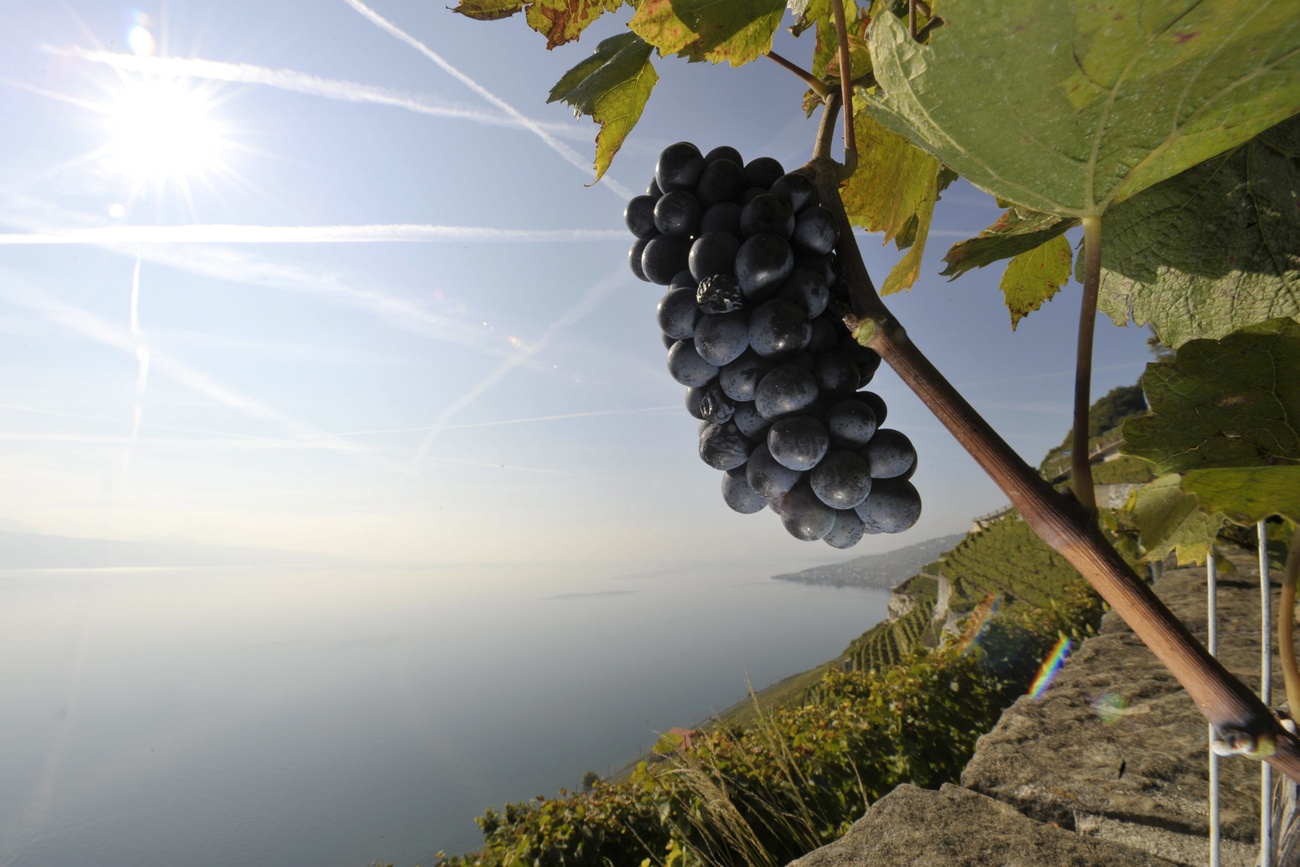
Swiss come second in world blind wine tasting championships

Switzerland has come runners-up at the 12th edition of the World Tasting Championship, organised by the Revue du Vin de France.
+Get the most important news from Switzerland in your inbox
The Italian team won the competition, which took place on Saturday at Château Dauzac, in the Médoc region of France, ahead of Switzerland and Taiwan, who tied on the podium. Thirty-nine countries were competing for the title.
The Swiss delegation was unique in that it was made up entirely of people from canton Vaud: Sylvie Camandona, a former employee of the Cave de La Côte, Rodrigo Banto, an oenologist at the same winery working alongside technical director Christian Gfeller, and François Vuille, who holds a master’s degree in oenology and is the cantonal delegate for energy transition.
These wine enthusiasts qualified last June by becoming Swiss champions in a competition at Château de Châtagneréaz in Mont-sur-Rolle.
+ The wine that unites: from Ticino to South Africa
Interviewed on Swiss public radio, RTS, on Monday, Camandona expressed her surprise at this fine performance. “We may have hoped to finish in the top third, but we didn’t expect to come second,” she said.
The result is testament to the hard work put in by the team, who met every week to train. Camandona explained that the group had been able to capitalise on its connection and shared passion. “It has to be said that we’re also friends. That helps, because we enjoy getting together,” she said.
Twelve wines to taste
During the competition, the participants had to taste 12 wines from all over the world, starting with a Spanish sparkling wine from the Corpinnat appellation, and ending with a French white wine from the Jura. The challenge was to identify the grape variety (10 points), the country (5 points), the region (5 points) and the vintage (3 points).
“There were three wines where we found everything and three where we found nothing,” said Christian Gfeller, referring in particular to an Argentinian Malbec that the team mistook for a Spanish wine because of its soft, warm aromas.
+ Swiss wine gets boost to fend off foreign competitors
“We try to pool our knowledge, each member having their own specialities,” Gfeller said. The tasting is not limited to the aromas on the palate, but also takes into account aspects such as retro-olfaction, the tannic structure and the colour of the wine, which can give valuable clues.
Gfeller stressed the importance of consensus within the team. “Different opinions, yes, but we converge towards a common opinion,” he said.
Interview by Valentin Emery and Mehmet Gultas. Web adaptation: vajo with ats
Translated from French by DeepL/ts
This news story has been written and carefully fact-checked by an external editorial team. At SWI swissinfo.ch we select the most relevant news for an international audience and use automatic translation tools such as DeepL to translate it into English. Providing you with automatically translated news gives us the time to write more in-depth articles.
If you want to know more about how we work, have a look here, if you want to learn more about how we use technology, click here, and if you have feedback on this news story please write to english@swissinfo.ch.

In compliance with the JTI standards
More: SWI swissinfo.ch certified by the Journalism Trust Initiative




























You can find an overview of ongoing debates with our journalists here . Please join us!
If you want to start a conversation about a topic raised in this article or want to report factual errors, email us at english@swissinfo.ch.